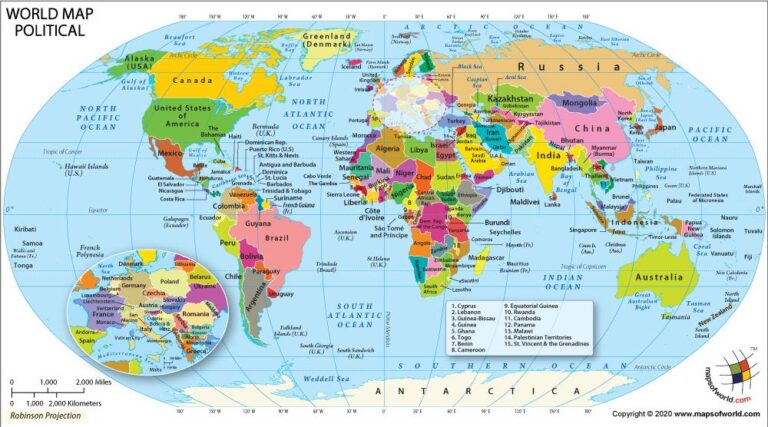In recent years, skepticism toward the United States has deepened among several countries long wary of American intentions. This enduring mistrust, shaped by historical grievances and geopolitical concerns, has been starkly reinforced during the Trump administration. As the former U.S. president’s erratic policies and unpredictable rhetoric challenged traditional alliances and global norms, nations that once doubted American reliability found their apprehensions validated. This article explores how longstanding doubts about America’s role on the world stage have been intensified under Trump’s leadership, reshaping international relations and strategic calculations.
Countries with Longstanding Skepticism Toward American Intentions
For decades, certain nations have harbored deep concerns about the reliability and sincerity of American foreign policy. These countries often cite historical instances where U.S. commitments wavered or shifted dramatically with changes in administration. Such wariness is not merely a product of Trump’s volatile presidency but rather the result of a long trail of perceived inconsistencies and strategic self-interests that have fueled distrust.
Among the nations most skeptical are those in:
- Russia, which views American actions as encroaching on its sphere of influence.
- China, wary of U.S. intentions amid trade wars and military posturing in the Asia-Pacific.
- Iran, feeling repeatedly betrayed by the U.S., especially after the abrupt withdrawal from the nuclear deal.
- North Korea, which has seen fluctuating diplomatic approaches leave it uncertain about true U.S. goals.
| Country | Historical Concern | Current Relation Status |
|---|---|---|
| Russia | NATO expansion fears | Highly antagonistic |
| China | Trade and military rivalry | Tense and competitive |
| Iran | Sanctions and nuclear deal abandonment | Frozen diplomatic ties |
| North Korea | Unstable negotiations | Uncertain, cautious |
How Trump’s Policies Reinforced Global Distrust in US Leadership
Under the Trump administration, longstanding alliances were strained as unpredictable policy shifts sowed uncertainty across the globe. The withdrawal from key international agreements such as the Paris Climate Accord and the Iran Nuclear Deal, paired with a transaction-first approach to diplomacy, signaled a departure from the multilateralism that once underpinned U.S. foreign policy. These moves were perceived not simply as ideological but as a repudiation of trust, especially by nations that had previously viewed the U.S. as a steadfast global leader.
Countries skeptical of American intentions found their doubts confirmed through a series of unilateral decisions and inconsistent messaging. The impact was tangible:
- Europe: Experienced heightened tensions as the U.S. questioned NATO’s value and delayed contributions.
- Asia: Navigated uncertainty amid shifting stances on North Korea and China trade policies.
- Middle East: Faced abrupt military and diplomatic realignments, challenging regional stability.
| Policy Action | Global Impact | Timeframe |
|---|---|---|
| Paris Climate Accord Withdrawal | Dampened cooperation on climate change initiatives | 2017-2021 |
| Iran Nuclear Deal Exit | Heightened Middle East tensions & sanctions | 2018 |
| NATO Funding Critique | Strained transatlantic security relations | 2018-2020 |
Strategies for Rebuilding International Trust and Diplomatic Credibility
Rebuilding trust on the international stage requires a multifaceted approach that prioritizes transparency, consistency, and respect for established alliances. Central to this effort is the need for clear and honest communication that acknowledges past missteps without deflecting responsibility. Diplomatic relationships thrive when the U.S. demonstrates predictability in its foreign policy decisions, signaling to partner nations that commitments are reliable and not subject to abrupt reversals driven by domestic politics or personal whims. Reinforcing intelligence-sharing agreements and honoring international treaties can create a foundation where suspicion gives way to cooperation.
Moreover, actively engaging with global institutions and supporting multilateral initiatives can restore America’s credibility as a collaborative power rather than a unilateral actor. Successful strategies include:
- Reaffirming alliances through regular high-level meetings and joint military exercises
- Investing in cultural and educational exchanges to rebuild grassroots support abroad
- Supporting development and humanitarian aid with transparent goals and accountability
| Key Action | Impact |
|---|---|
| Renewed Treaty Commitments | Boosts trust in America’s word |
| Consistent Public Messaging | Reduces diplomatic uncertainty |
| Strengthened Multilateralism | Enhances global cooperation |
Wrapping Up
As the article highlights, longstanding skepticism toward American leadership among certain countries is being reinforced under the Trump administration. Whether driven by policy shifts, rhetoric, or diplomatic maneuvers, these developments challenge traditional alliances and reshape global perceptions of the United States. Moving forward, the implications of this growing distrust will continue to influence international relations and geopolitical strategies worldwide.




